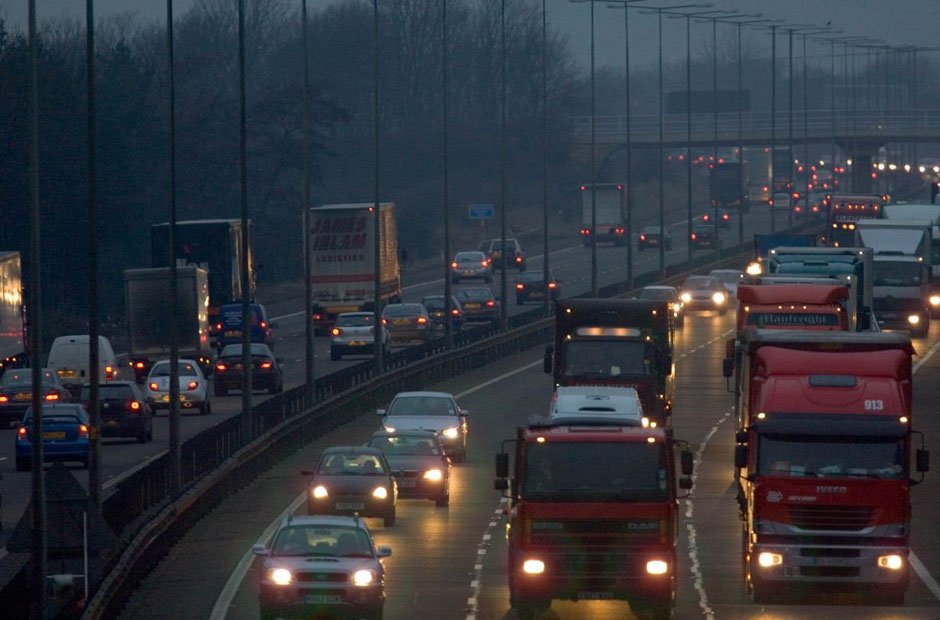Air pollution is a growing problem for people worldwide, and it is no secret that it is causing a significant rise in respiratory illnesses. Recent studies have shown that children are more vulnerable to the effects of air pollution. The rapid increase in child asthma cases has prompted a surge in GP visits, leading health professionals to call for more action to be taken.
Table of Contents
Air Pollution and Asthma: An Alarming Connection
Asthma, a prevalent chronic respiratory disease, impacts countless individuals globally. Many individuals living with asthma experience periods of wheezing, chest tightness, shortness of breath, and coughing. The exact cause of asthma hasn’t been discovered, but researchers have concluded that genetics and environmental factors are some of the leading causes.
A study conducted by researchers from Kings College examined over 750,000 respiratory consultations at general practitioner offices and inhaler prescriptions. The findings, as reported by the Guardian, reveal that an increase of 9 µg/m3 in particle pollution over a week in Lambeth resulted in a 7.5% increase in consultations for asthma and respiratory infections in children. Additionally, a rise of 22 µg/m3 in nitrogen dioxide pollution, with an average level of 51 µg/m3, was associated with a 6% increase in consultations.
The Case of Ella Kissi-Debrah
Ella’s untimely death at the age of nine due to a severe asthma attack in south London on February 15, 2013, highlights the tragic nature of her fame. Before her passing, she experienced over 25 urgent hospital admissions within three years. On Ella’s original death certificate, it was stated that she passed away due to acute respiratory failure. Surprisingly, throughout her illness, healthcare professionals never discussed the possibility of air pollution acting as an asthma trigger, alongside more commonly recognized triggers like pollen or weather conditions. In 2020, a significant report from the coroner declared Ella as the first individual worldwide whose cause of death was attributed to air pollution.
Over a decade, Rosamund Kissi-Debrah has transformed into a powerful voice in the fight for cleaner air following the devastating loss of her daughter. Through her dedication, she is spearheading the “Ella’s Law” initiative in the UK parliament and actively representing the World Health Organization.
Major Causes of Air Pollution
Fossil fuels such as oil, coal, and natural gas are the primary sources of energy in the world today. These fuels are burnt to provide electricity, heat homes, and power industries. However, the burning of fossil fuels releases harmful gases and particles into the air, leading to air pollution. Diesel emissions, in particular, are a major cause of air pollution. Diesel engines are commonly used in vehicles, ships, trains, and generators. Diesel engines emit a complex mixture of gases and particles, including nitrogen oxides (NOx), particulate matter (PM), and hydrocarbons (HC).
Diesel engines emit more NOx and PM compared to gasoline engines. NOx is a toxic gas that causes respiratory problems, while PM is a harmful particle that can lead to lung cancer and other respiratory diseases. HC is also a toxic gas that can cause health problems. Diesel engines are a major source of NOx emissions, contributing to smog and acid rain. PM from diesel engines can also travel long distances and impact areas far from the source of emissions. According to the WHO, PM from diesel engines is responsible for about 4.2 million premature deaths globally every year.
The Volkswagen Dieselgate scandal in 2015 brought the issue of diesel emissions to the forefront of public attention. It was discovered that Volkswagen had integrated software into their diesel engines that could sense when they were being evaluated and activate emission controls, but then turn them off during everyday driving. This resulted in their diesel cars emitting up to 40 times more NOx than permitted under regulations. Dieselgate led to increased scrutiny of the emissions of all diesel vehicles, and manufacturers were forced to recall cars and pay hefty fines. The scandal has underscored the importance of reducing diesel emissions and holding manufacturers to account for diesel claims.
Actions to Address Air Pollution
The Paris Agreement, signed in 2015, aims to limit global warming to well below 2°C above pre-industrial levels and to pursue efforts to limit the temperature increase to 1.5°C. At the national level, many countries have implemented policies to reduce air pollution. For example, the UK government has introduced measures to promote the use of renewable energy and reduce emissions from transportation. The Clean Air Strategy, released in 2019, outlines the government’s plan to reduce air pollution and improve air quality nationwide.
Individuals can also take action to reduce air pollution by choosing sustainable transportation options and by filing a diesel emissions claim. Diesel claims are legal actions against manufacturers of diesel engines and vehicles that emit excessive amounts of pollutants. Visit https://emissions.co.uk to learn how you can get started with yours.










